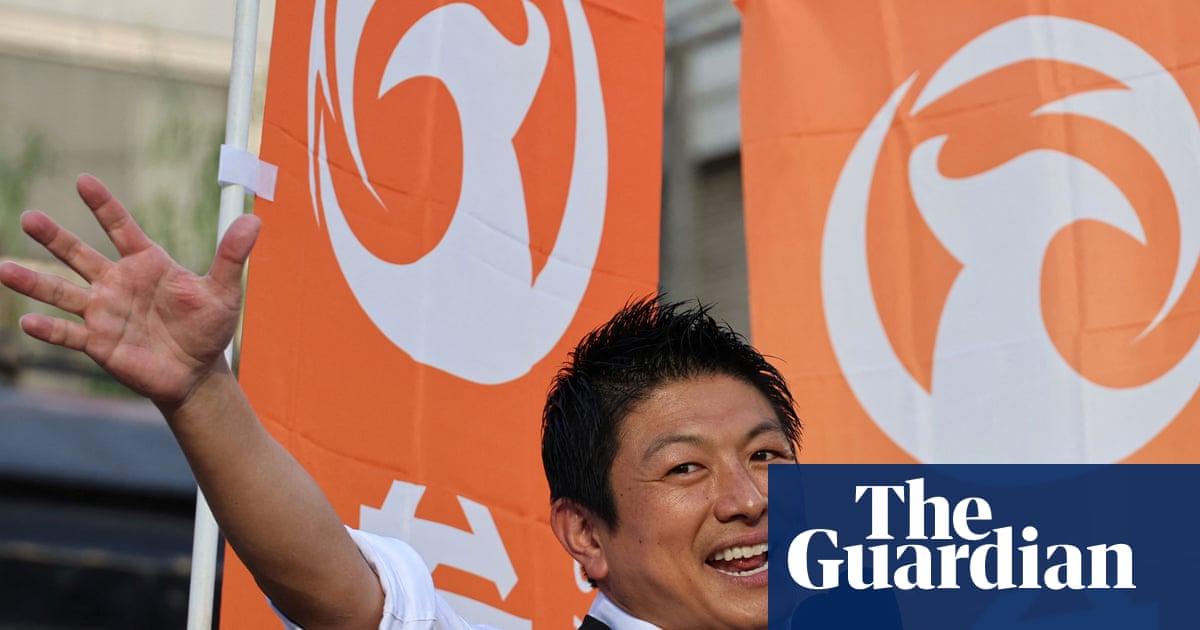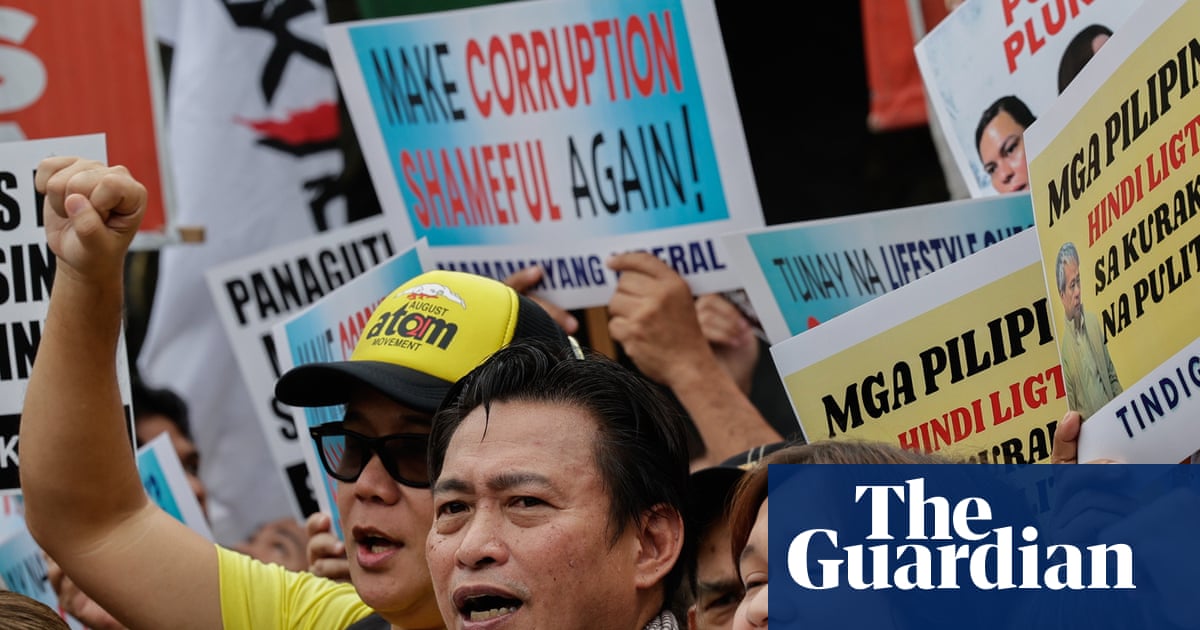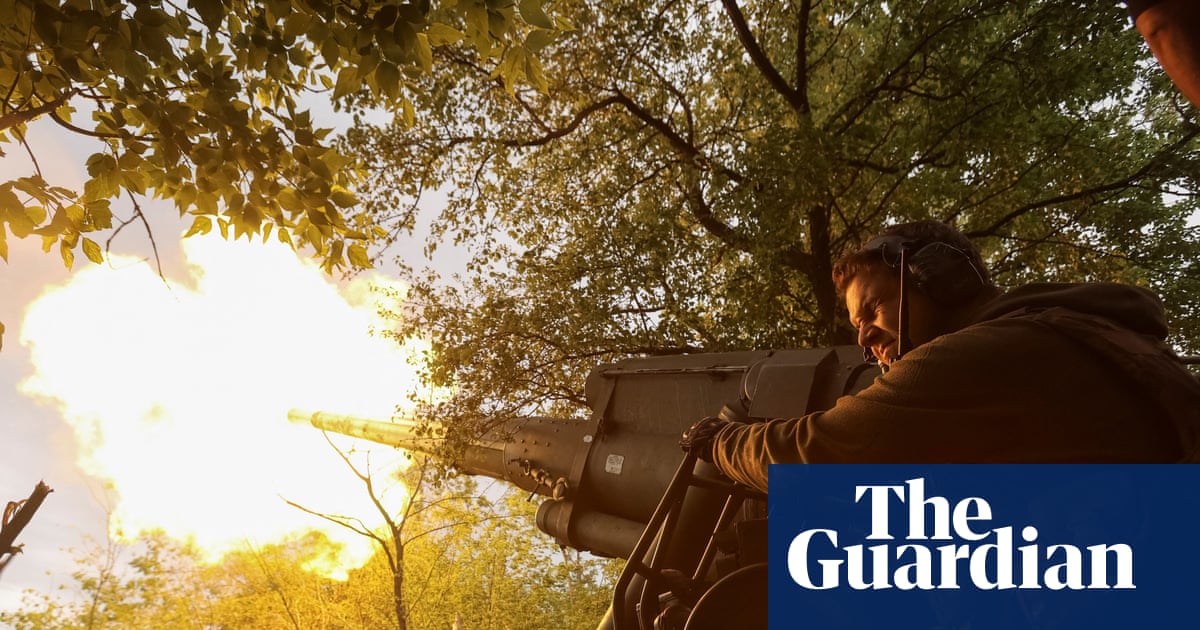Indirect talks between Israel and Hamas over a ceasefire and hostage deal in Gaza continued for a second day on Monday, hours before a meeting in Washington between Benjamin Netanyahu and Donald Trump.
Avi Dichter, an Israeli minister and member of Netanyahu’s security cabinet, said he expected Trump’s meeting with the Israeli prime minister would go beyond Gaza to include the possibility of normalising ties with Lebanon, Syria and Saudi Arabia – an ambitious project that is central to the US president’s policy in the Middle East.
“I think it will first of all be focused on a term we have often used but now has real meaning; a new Middle East,” Dichter told Israel’s public broadcaster Kan on Monday.
Trump has increased pressure for a deal in Gaza in recent weeks and raised the possibility that a ceasefire could be declared in a matter of hours or days.
Before departing for Washington on Sunday evening, Netanyahu said he was confident a deal could be achieved and that Israeli negotiators had been given clear instructions to achieve a ceasefire – but only with conditions that Israel has already agreed.
Sources in the prime minister’s entourage described the talks in Doha as positive, according to Israel’s military radio station and an Israeli official quoted by Reuters. Palestinian officials were more downbeat and said initial meetings on Sunday had ended inconclusively.
The current proposal envisages a phased release of about 28 hostages held by Hamas during an initial 60-day ceasefire, as well as the release of hundreds of Palestinian prisoners in Israeli jails, Israeli troop withdrawals from parts of Gaza, a surge of humanitarian aid and discussions on a definitive end to the 21-month conflict.
In March, a previous ceasefire collapsed when Israel reneged on a promise to engage in negotiations that would have led to a second scheduled phase of the existing truce and possibly a permanent cessation of hostilities.
Hamas officials have now demanded strong guarantees that Israel will not launch a new offensive after the 60 days is over.
The militant Islamist organisation also wants the UN and other international organisations to control deliveries of humanitarian aid in Gaza, and bar the Gaza Humanitarian Foundation (GHF), a secretive US and Israel-backed private organisation that started distributing aid in Gaza in May and has been mired in controversy.
A further point of dispute is Hamas’s demand for Israel’s military to pull back much further than proposed in negotiations. The Israeli military now holds about two-thirds of Gaza, including key strategic corridors as well as a swath of the southern part of the territory that has been razed flat and which Israel is reluctant to give up.
“Hamas are eager for a ceasefire, there is no doubt at all … but they have their red lines too. Here in Israel, we have had an experiment with the idea that more and more pressure on Hamas means they will [eventually] give up. Well, how much more pressure can you imagine?,” said Michael Milstein, a Hamas expert and the head of the Palestinian studies forum at Tel Aviv University.
But Hamas, which has ruled Gaza since 2007, is under immense pressure, having suffered significant casualties in the conflict and the loss of much of its authority in the devastated territory. The organisation has also been undermined by the recent military success of Israel against Hezbollah, the Lebanon-based militia and political movement that was a key ally, and against Iran, a major supporter overseas, in a short war in June that was brought to an end when the US bombed Iranian nuclear facilities and then imposed a ceasefire.
“Hamas know they badly need a pause to regroup and take a breath … but they want to survive in the long run. That’s the only real goal … so they are not going to give up everything,” said one source close to Hamas familiar with the current negotiations.
This is why Hamas is refusing two key demands of Israel that are not included in the draft ceasefire proposal, giving up its weapons and sending its Gaza-based leadership into exile, the source said.
Hamas’s losses are contested. Israel has said it has killed more than 20,000 militants in Gaza, but offered no evidence to support the claim. There is little doubt that most of the senior leaders of the group in the territory at the beginning of the war are now dead.
Gaza’s ministry of health has counted more than 57,000 killed by the Israeli offensive there, mostly civilians. The UN and western governments consider the tally to be reliable.
The offensive has plunged Gaza into an acute humanitarian crisis, with much of the 2.3 million population threatened by famine, and reduced much of the territory to rubble.
Gaza’s civil defence agency said Israeli forces killed at least 12 people on Monday, including six in a clinic housing displaced Palestinians. “We were surprised by missiles and explosions inside the building,” Salman Qudum, a witness, told AFP.
In the south of the territory, Mahmoud Bassal, a civil defence spokesperson, said two people were killed and 20 others injured by Israeli forces’ gunfire near a distribution site run by the GHF.
Hundreds have been killed in recent weeks seeking food from the organisation’s distribution points, from UN convoys and from looted aid trucks.
The Israeli military did not immediately comment on the reports of casualties. In a separate statement, it said it had struck “dozens of terrorists, weapons depots, observation posts, military buildings and other terror infrastructures” over the past 24 hours.
The war was triggered by a Hamas-led attack on southern Israel in October 2023 in which militants killed 1,200 people, mostly civilians, and abducted 250. Of the hostages, 50 remain in Gaza, of whom less than half are thought to be alive.
Some of Netanyahu’s hardline coalition partners oppose any end to the fighting. But, with Israelis having become increasingly weary of the war and the military supporting a ceasefire so that remaining hostages can be returned, his government is expected to back a ceasefire.

 2 months ago
42
2 months ago
42

















































